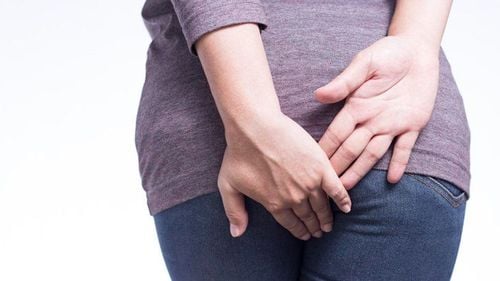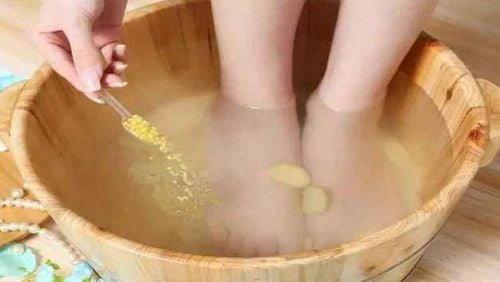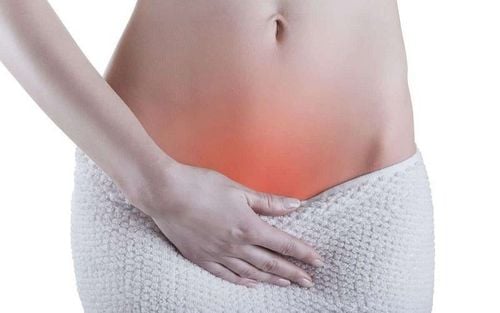This article was written under the professional guidance of doctors from the Department of Gastroenterology - Hepatobiliary - Vinmec International Hospital.
Non-surgical treatment of hemorrhoids is typically prioritized by doctors when the condition is in its early stages. This approach is becoming more relevant as hemorrhoids increasingly affect younger populations due to the stress-filled pace of modern life. Therefore, applying non-surgical hemorrhoid treatments can help patients alleviate the discomfort caused by hemorrhoids effectively.
1. When is non-surgical hemorrhoid treatment applicable?
Hemorrhoids are formed by excessive dilation of the hemorrhoidal venous plexus. Although not a malignant condition, hemorrhoids significantly affect the quality of life, causing itching and pain in the anal area, particularly during bowel movements.
If left untreated, the condition can lead to dangerous complications such as hemorrhoid necrosis, septicemia, and even life-threatening conditions.
For external hemorrhoids, the condition has 4 different stages including:
- Stage 1: Newly formed hemorrhoids with no significant symptoms.
- Stage 2: Hemorrhoids enlarge and protrude from the anus, causing discomfort and inconvenience to the patient.
- Stage 3: Larger hemorrhoids causing pain, bleeding, and thrombosis.
- Stage 4: Severe hemorrhoids with inflammation and pain, with significant impacts on the patient's health and activities.
In the early stage, patients often have no obvious symptoms and no discomfort. During this phase, patients can be treated with internal medicine combined with adjustments in diet and lifestyle. The treatment time for patients at this stage typically lasts around 1 month. In stages 3 and 4, when hemorrhoids are enlarged and there is a risk of complications such as infection, thrombosed external hemorrhoids or necrosis, surgical intervention is often required.

Thus, non-surgical treatment of hemorrhoids is effective when the disease is detected and treated at an early stage, helping to increase the success rate of treatment and prevent the risk of recurrence.
2. Principles of treating hemorrhoids
Treatment of early-stage hemorrhoids adhere to the following principles:
- Patients should adjust their lifestyle, use special cushions with holes to reduce pressure on the anus, perform pelvic floor exercises, maintain a healthy diet, supplement collagen, fiber, vitamins… This is the basic principle in non-surgical hemorrhoid treatment.
- Surgery is usually applied to cases of grade 4 hemorrhoids with obvious symptoms, internal hemorrhoids with strangulation, grade 3 hemorrhoids with symptoms, or patients with thrombosed hemorrhoids.
- For patients with external hemorrhoid thrombosis, the doctor needs to evaluate and perform surgical intervention within 24 hours after the thrombosis appears. This helps reduce swelling and pain since they are usually most severe after 48 hours.
- During surgery to remove thrombosed hemorrhoids, the patient will be administered with local anesthesia.
3. Methods for Non-Surgical Hemorrhoid Treatment
In general, not all cases of hemorrhoids require surgery. This is a condition that can be managed medically without surgical intervention. Surgery is only considered when other treatments are ineffective or in cases where the patient's hemorrhoids are severe.
- For hemorrhoids from level 1 to level 3 (if the hemorrhoids are small): The hemorrhoids are still small, and the external hemorrhoids have not yet become completely complicated. Therefore, the patient may not need surgery.
- For patients with grade 3 hemorrhoids with large hemorrhoids, grade 4 or external hemorrhoids with complications: At this time, surgery is necessary.
Ways to treat hemorrhoids without surgery include:
- Medications: Medicine is used to treat acute hemorrhoids or hemorrhoids that cause bleeding, anal itching or swelling.
- Managing constipation: Patients should eat a lot of fiber (vegetables and fruits), drink a lot of water (2.5 liters of water per day, preferably boiled water), avoid spicy foods, and limit stimulants (chili, alcohol, garlic, beer, coffee). Accordingly, patients should exercise regularly and reasonably 60 minutes daily, 5 times per week. Patients can also use probiotics containing soluble fiber to prevent constipation.
- Pain relief: Apply a hypertonic saline solution as a cold compress to the affected area. Patients can also soak the affected area in warm water several times a day to relieve pain caused by hemorrhoids.
4. Preventing and minimizing hemorrhoids
Taking preventive measures against hemorrhoids is extremely important, helping to reduce the risk of hemorrhoids in healthy patients and preventing the condition from becoming more severe. Along with that, these measures also help limit the recurrence of the disease and alleviate the condition.
The following methods are also especially helpful for people who have had hemorrhoidectomy surgery. Specifically, measures to prevent hemorrhoids include:
- Dietary changes: Increase fiber intake and stay hydrated.
- Increase physical activity: Maintain a regular exercise routine.
- Balance work and life: Get 7-8 hours of sleep per night, avoid prolonged stress, and limit work that requires physical exertion or heavy lifting.
- Establish regular bowel habits: Avoid straining, and limit time spent on the toilet. The best sitting position is squatting.
See also: Guide to diagnosing hemorrhoids
Please dial HOTLINE for more information or register for an appointment HERE. Download MyVinmec app to make appointments faster and to manage your bookings easily.













